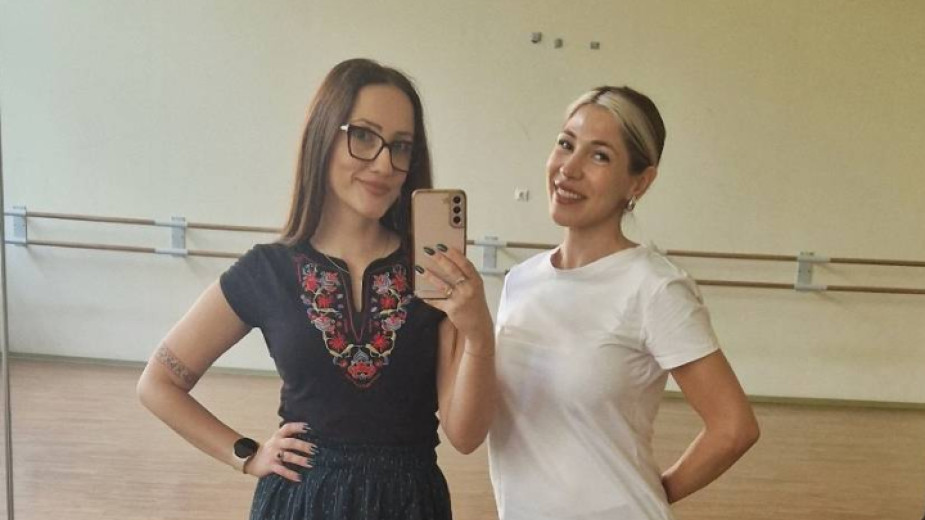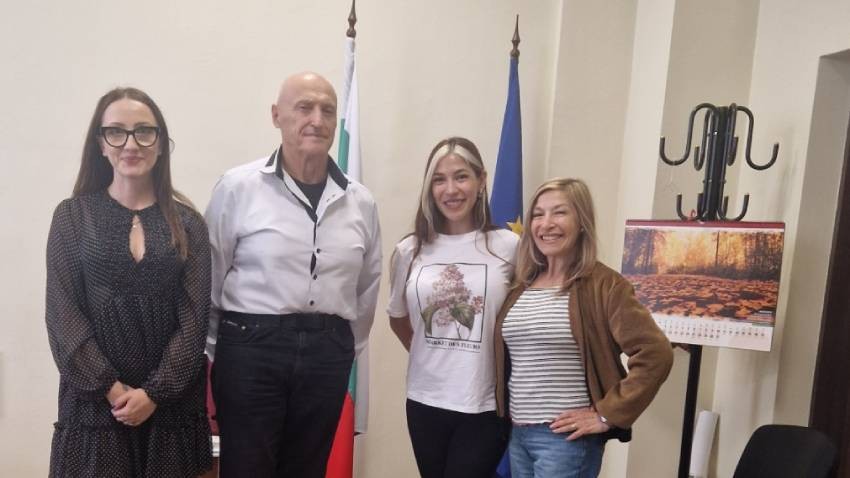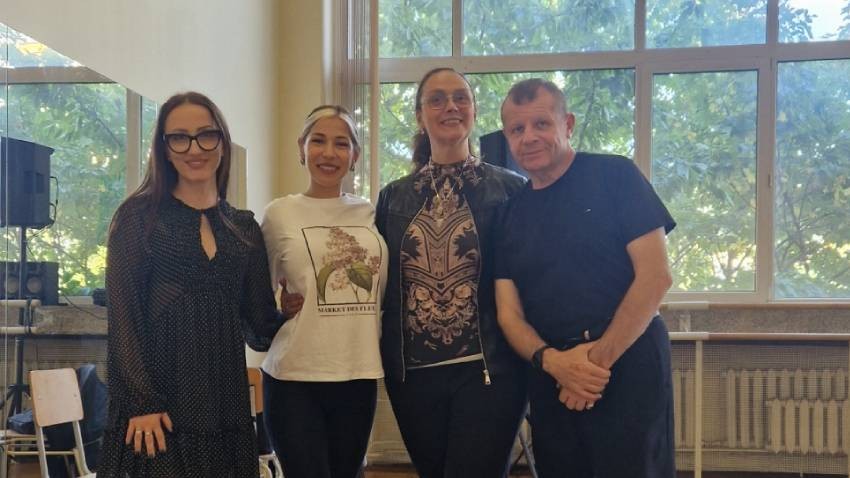 2
2
Anabell Casaboff is one of the thousands of descendants of Bulgarians in Argentina who do not speak the language of their grandparents but Bulgaria is still present in their lives. She is a charming ballerina who dances and teaches classical ballet, but who is also a teacher of Bulgarian folk dances at Tangra Ballet in Buenos Aires. A few days ago, Anabell and her mother Anna visited Bulgaria, as the purpose of their long trip was for Anabell to become familiar with Bulgarian folk dances, to learn as much as possible from the Bulgarian professionals in this field and to bring the knowledge to distant Argentina in order to transfer it to the students in her school. Plovdiv, Kazanlak, Veliko Tarnovo and Sofia were stops on her way across Bulgaria and according to her, she was welcomed hospitably and learned many new things.

Anabell and Anna told Radio Bulgaria about their family history, which begins around 1905, when Anabell’s great-great-grandfather, Panayot Kasabov, boarded a ship for Argentina, together with his brother, who died on the way. During the trip, Panayot was shown pictures of different places in Argentina where he could settle. He chose San Miguel de Tucuman, a northern mountainous province with many flowers, which reminded him a lot of his distant homeland. When he settled there, along with the other expats he started attending classes in Spanish taught for free by girls from wealthy families in the city. Just like in the fairy tales, he fell in love with his young teacher and proposed to her. After many vicissitudes caused by the great difference in the social status of the two, they managed to get married. The two had five children- one boy and four girls. The youngest girl is Anabell’s maternal grandmother.
The story continues in more present days when Anna started living in Buenos Aires and chose the path of ballet art, which her daughter Anabell also follows.

"I have been leading the group since 2018, but it has existed since the 1980s, when the Argentine-Bulgarian Foundation was established in Buenos Aires. The group disbanded for a period because the Bulgarian communities in Argentina encountered certain difficulties. Now the group includes both descendants of Bulgarians and Argentines - lovers of folk dances. The city administration always invites us to the events of various communities and in Buenos Aires we celebrate the Day of Bulgaria," Anabell tells Radio Bulgaria and continues:
"Here I learned many things, as the distance between Bulgaria and Argentina is quite big. It's hard for us to follow folklore in Bulgaria in a way that's professional enough for the ensembe. We work by taking classes online, browsing the web, exchanging materials. Now I will take back many new skills that do not reach Argentina. I visited the dance school in Sofia. These were long days. I started in the morning and finished in the evening, as I attended all possible classes.”
How do the descendants of Bulgarians in Argentina organize their events?

"There are five Bulgarian communities in Argentina, where descendants of Bulgarians gather. They are located in the northern province of Chaco, in Comodoro Rivadavia to the south, in Berisso and in the capital. We try to keep our roots alive. The elderly strive to show the young what Bulgarian life was like, what the typical meals are, as well as what the traditional dances and clothes in the different regions of Bulgaria look like. It is not easy, but with joint work we keep our roots alive and spread our traditions in Argentina."
Does Anabell feel more Argentinian or Bulgarian?

"I feel Argentinian, of course, but at the same time I feel Bulgaria inmy heart, because my family has always followed Bulgarian traditions. I lead the ballet troupe and I promote Bulgaria. It is present in my life every day. So, I am also half Bulgarian."
The Executive Agency for Bulgarians Abroad assisted Anabell upon her arrival in the country, connecting her to the National School of Dance Art in Sofia, where she participated in the classes of different age groups, from 8th to 11th grade, as well as in their dance classes related to various folklore areas. During the time she spent in Bulgaria, Anabell learned new steps, the way the hands are held during the dance and she participated in many horo dances, Iva Krumova, chief expert for Latin America at the Executive Agency for Bulgarians Abroad, told us.
Upon leaving Bulgaria, Anabell received authentic folk costumes as a gift, which she will take to Argentina and continue to bring joy to the fans of Bulgarian folk dances.
Publication in English: Al. Markov
Photos: Executive Agency for Bulgarians Abroad
Erica Perales came from faraway Argentina and managed to conquer the hearts of the participants in the 1 st Festival of Bulgarian Folklore Ensembles Abroad . During the event in Veliko Tarnovo, she performed in a unique way one of the..
A successful soloist and renowned teacher, Bulgarian violinist Devorina Gamalova has lived in London for more than three decades . She was born in Bulgaria's town of Gabrovo, to a Bulgarian father and a German mother from Dresden. She studied in Ruse..
We met Frenchman Emmanuel Delhoume in the Bulgarian Orthodox Church "St. Patriarch Euthymius of Tarnovo" in Paris. He is married, has five children and his family professes the Orthodox faith. He discovered Bulgaria at a time of..

+359 2 9336 661
